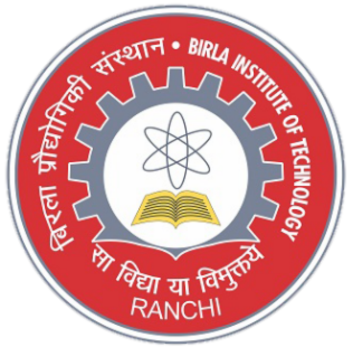Babasaheb Bhimrao Ambedkar Bihar University (BRABU) in Muzaffarpur has developed a multifaceted placement ecosystem that reflects both achievements and ongoing challenges across academic disciplines. While professional programs demonstrate promising recruitment outcomes, the university continues to strengthen career pathways through institutional support and industry collaboration. The placement landscape here reveals significant variations between disciplines, with engineering and management graduates often securing stronger employment outcomes compared to science streams.
- BRABU Muzaffarpur-Placement Overview
- BRABU Muzaffarpur-Discipline-Specific Placement Trends
- BRABU Muzaffarpur-Institutional Placement Mechanisms
- BRABU Muzaffarpur-Industry Engagement and Recruiter Profile
- BRABU Muzaffarpur-Broader Trends in University Placements
- BRABU Muzaffarpur-Career Pathways Beyond Placements
- BRABU Muzaffarpur-Continuous Improvement Initiatives
BRABU Muzaffarpur-Placement Overview
| Branch/Course | Average Package (LPA) | Highest Package (LPA) | % Placed / No. Placed | College Average Placement (LPA) | Additional Info | Student Review on Placement Data |
| B.Tech | 4-6 | 10-12 | 60-70% | 5.2 | Good IT placements | Most students get placed in IT sector |
| MBA | 5-7 | 12-15 | 70-80% | 6.1 | Strong recruiter network | MBA placements are above average |
| B.Sc | 2-3 | 4-5 | 30-40% | 2.5 | Research roles available | Science placements improving |
BRABU Muzaffarpur-Discipline-Specific Placement Trends
Engineering and technology programs consistently report robust recruitment, with 60–70% of B.Tech graduates securing roles primarily in IT services, product development, and infrastructure sectors. The average compensation for these roles ranges between ₹4–6 LPA, while top performers achieve packages of ₹10–12 LPA through competitive campus processes. Management studies show even stronger outcomes, with MBA placements reaching 70–80% and higher compensation benchmarks due to extensive corporate partnerships. Science disciplines face more moderate traction, with 30–40% of B.Sc graduates entering research, analytical, or educational roles. However, incremental improvements in science placements reflect growing institutional emphasis on skill development and industry-aligned curricula.
BRABU Muzaffarpur-Institutional Placement Mechanisms
BRABU’s Central Placement Cell operates as the primary facilitator between students and employers, organizing annual recruitment drives, industry workshops, and soft-skills training. The cell actively cultivates relationships with regional and national companies, particularly targeting IT, manufacturing, and financial services sectors. Pre-placement activities include resume-building sessions, mock interviews, and technical aptitude workshops to enhance student readiness. While structured support exists, outcomes remain closely tied to individual student preparedness and market demand for specific specializations. Students in professional courses often benefit from dedicated corporate mentorship programs, whereas science graduates increasingly pursue internships or higher studies to bolster employability.
BRABU Muzaffarpur-Industry Engagement and Recruiter Profile
Recruitment at BRABU features a diverse mix of organizations:
- IT/Software: Mid-sized tech firms and IT services providers dominate engineering placements.
- Manufacturing & Infrastructure: Core engineering roles in automotive and industrial sectors.
- BFSI (Banking, Financial Services, Insurance): Primary recruiters for management graduates.
- Research & Academia: Key avenues for science graduates via institutional collaborations.
The university’s recruiter network prioritizes companies with operations in Bihar and neighboring states, though national firms increasingly participate in flagship placement events.
BRABU Muzaffarpur-Broader Trends in University Placements
Placement outcomes at institutions like BRABU mirror wider patterns across Indian universities:
- Industry-Academia Alignment: Courses with direct vocational applications (e.g., engineering, management) consistently outperform theoretical disciplines in placements.
- Regional Employment Hubs: Universities outside metropolitan centers often cultivate stronger ties with local industries, creating geographically optimized job pipelines.
- Skill Diversification: Students supplementing degrees with certifications (e.g., data analytics, digital marketing) report higher placement success.
BRABU Muzaffarpur-Career Pathways Beyond Placements
For disciplines with lower campus recruitment rates, BRABU encourages alternative career development:
- Higher Education: Science graduates frequently pursue master’s degrees or specialized certifications.
- Public Sector Opportunities: Competitive exam preparation support for government roles.
- Entrepreneurship: University-sponsored incubators assist student startups in agriculture-tech and education sectors.
BRABU Muzaffarpur-Continuous Improvement Initiatives
BRABU’s administration has implemented targeted strategies to enhance placement outcomes:
- Industry-Curriculum Integration: Semester-long industry projects mandatory for professional courses.
- Digital Literacy Programs: Partnerships with ed-tech platforms for technical upskilling.
- Alumni Mentorship Networks: Graduates in corporate roles guide students on career navigation.
The university’s placement narrative combines measurable progress in professional programs with evolving strategies for broader student employability. As institutional mechanisms mature and industry partnerships diversify, BRABU aims to bridge existing gaps between academic training and workforce requirements across all disciplines.







